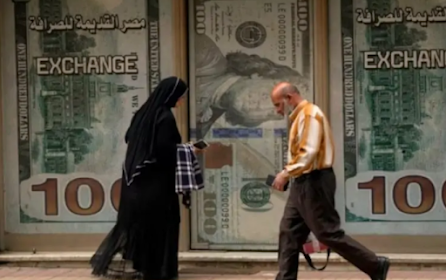Egypt Secures $8 Billion IMF Deal Amid Economic Challenges
Prime Minister Moustafa Madbouly declared on Wednesday that Egypt has successfully concluded negotiations with the International Monetary Fund (IMF), resulting in a substantial increase in its bailout loan from $3 billion to $8 billion. This significant agreement, following months of discussions, is anticipated to offer crucial financial support to Egypt's struggling economy. Beyond enhancing the IMF loan, the deal also facilitates Egypt's access to additional loans from institutions like the World Bank.
To meet the key demands of the IMF, Egypt's Central Bank implemented swift measures, including raising its main interest rate and floating the currency. The Egyptian pound depreciated by over 60% against the US dollar within hours, prompting commercial banks to adjust exchange rates significantly. The central bank's key interest rate was raised by 600 basis points to 27.75% to address inflationary pressures and attract foreign investment.
Facing numerous challenges, including government austerity measures, the impact of the COVID-19 pandemic, repercussions of the war in Ukraine, and recent tensions from the Israel-Hamas conflict, Egypt's economy has encountered hardships. The $8 billion IMF deal is a strategic move to fortify economic resilience amid these challenges, injecting much-needed liquidity and signaling confidence in the country's commitment to crucial economic reforms.
The Central Bank's decision to raise interest rates and float the currency is a delicate balancing act aimed at addressing economic issues. This includes a commitment to curbing inflationary pressures by increasing the key interest rate and, simultaneously, making exports more competitive to attract foreign investments by allowing the currency to float.
Egypt's economic challenges are intertwined with global events, emphasizing the need for comprehensive strategies to secure essential resources, particularly as the world's largest wheat importer. As Egypt positions itself for recovery, it is essential to address immediate financial concerns and craft policies that build resilience against unforeseen global shocks.
The dynamic approach demonstrated through the expanded IMF deal and the Central Bank's measures reflects Egypt's commitment to charting a resilient path forward. Success in these initiatives will depend on effective implementation, adaptability, and sustained global cooperation, positioning Egypt as a formidable player in the evolving landscape of international finance. The pursuit of an $8 billion IMF bailout is a significant step in addressing economic turmoil exacerbated by various external factors, with the success of these financial maneuvers crucial for Egypt's economic trajectory amid recovery efforts from austerity, the pandemic, and global conflicts.




Comments
Post a Comment